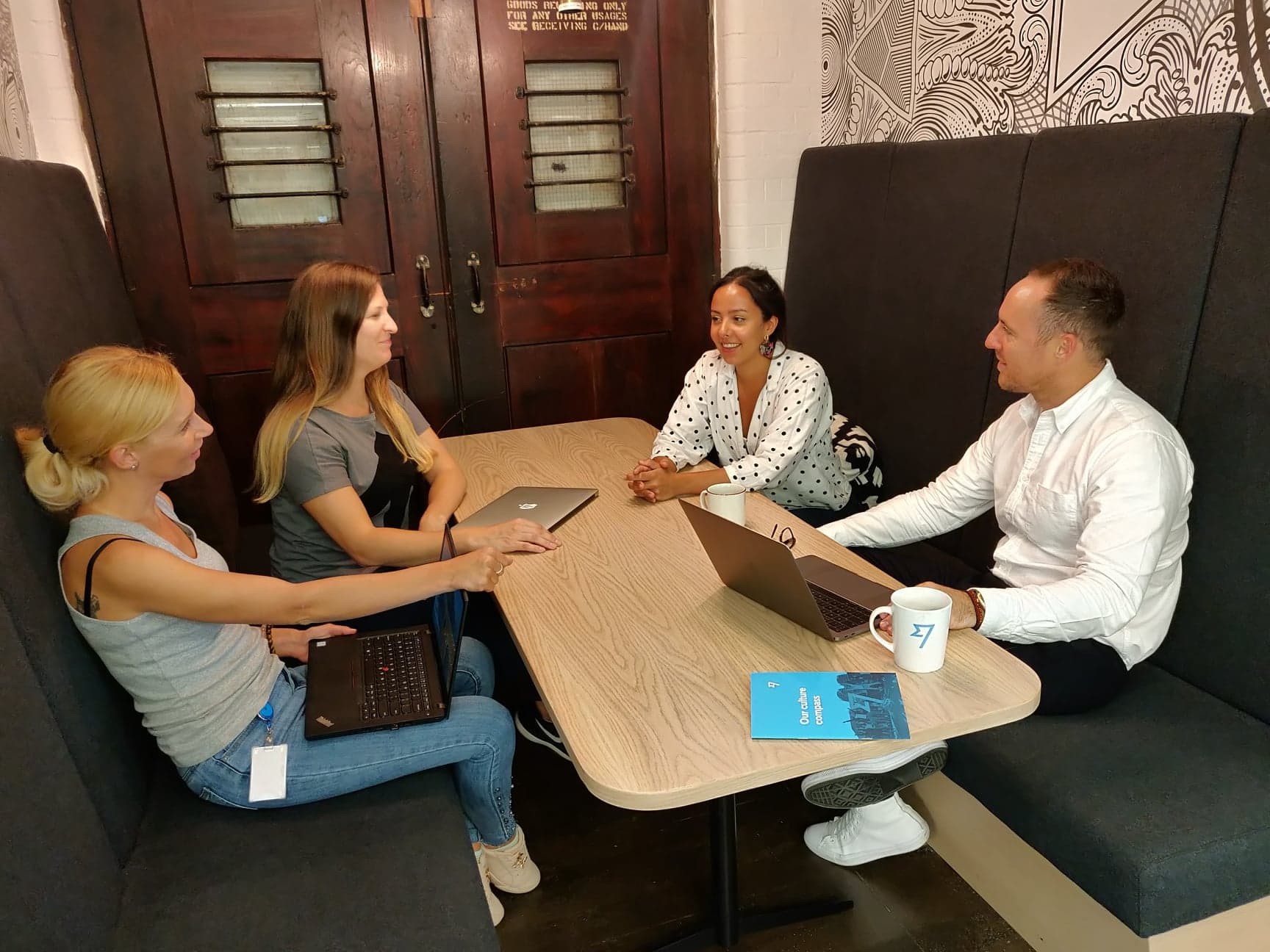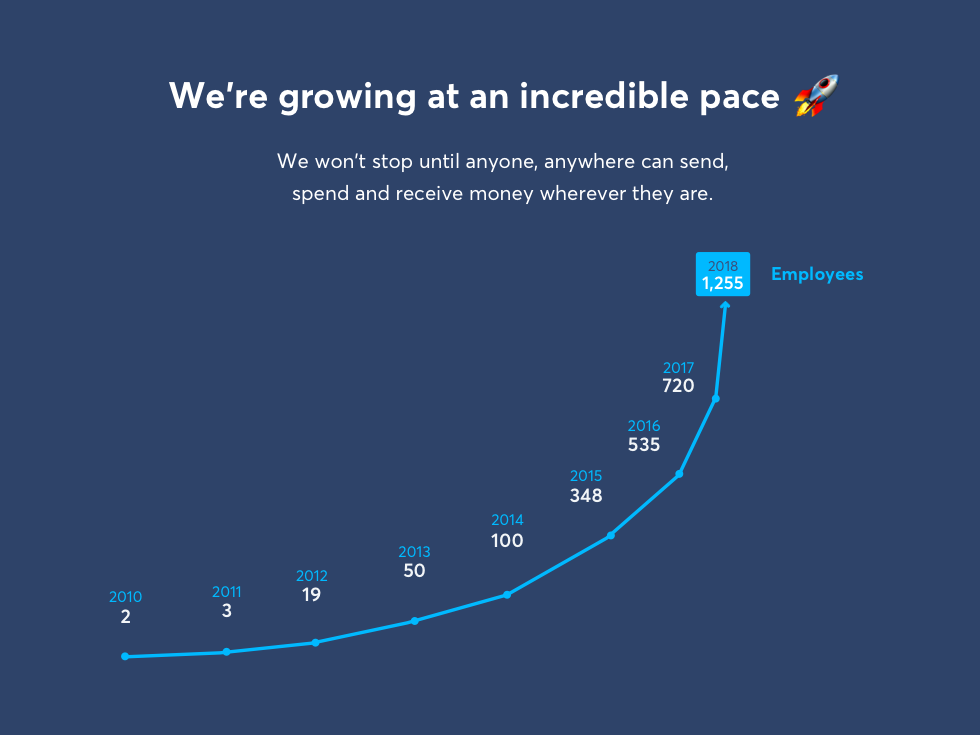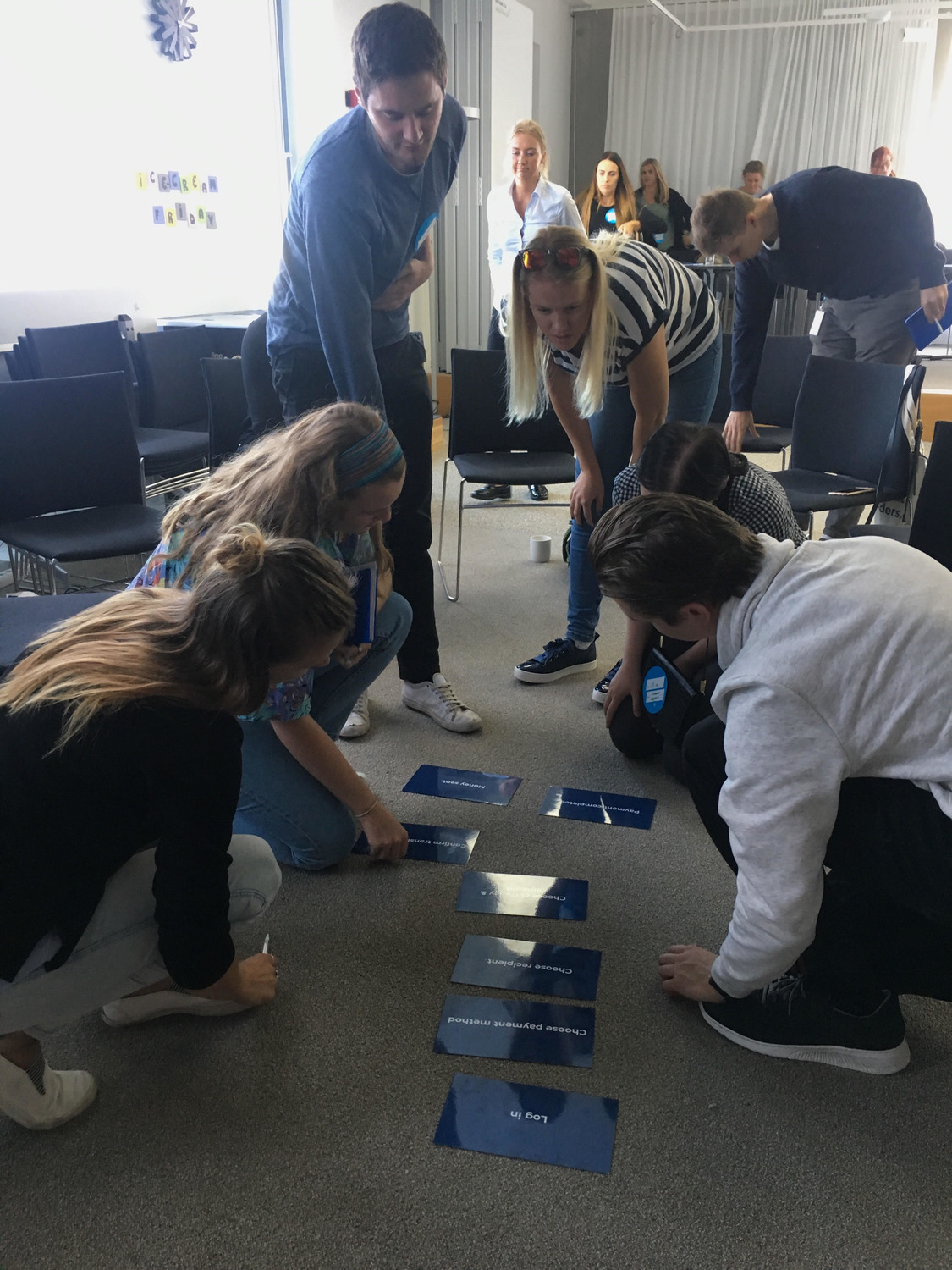So you’re building your first UX writing team…
Picture the scene. You’ve just joined one of the fastest-growing tech startups in the UK. You’re employee number 899. As the first writer they’ve hired,...

"Organizations with a strong on-boarding process improve new hire retention by 82% and productivity by over 70%.” - Brandon Hall Group “The True Cost of a Bad Hire”
Hey, I’m Ross. I joined Wise 6 months ago as Chief People Officer. Like many coming into our company, I joined not only because I believe in our mission, but also because I’m inspired by our values and how everyone works together to get use closer each day.

After a whirlwind few months getting to know the company and working side-by-side with our teams, based in 11 offices around the world, I took some time to reflect on my own on-boarding process.
We’re a company that’s grown rapidly in size in a very short space of time. Currently we're hiring and on-boarding 75 newbie Wisers on average every month. At 1255 people (to date!) maintaining our mission-driven culture has been key to successfully growing our organisation and will remain as just important as we continue scale.

Wise is a pretty unique place to work and we do things a bit differently. Our strategy doesn’t emerge from the top-down, with a corporate hierarchy and a small group of people making decisions on behalf of everyone.
Instead, it emerges from the collective brainpower of all our people, who are organised in dozens of independent, autonomous teams. Teams make their own decisions. They stay closest to our customers, so they choose what problems to solve and where to spend the most time. This means they can move fast and run multiple projects at the same time.
In reality, this means, for many of our new joiners, the first part of their journey may end up challenging them in more ways than one, as it can be quite different from the organisations they’ve joined from.
But that wasn’t an accident. Many people, including myself, spent a lot of time intentionally planning, preparing, and pulling it all together. As a result, it was probably the best on-boarding experiences I’ve had in my years of leading people teams. I know that not all of our new joiners had the same positive experience I had. This sometimes leads to people questioning why they joined in the first place or, at its extreme, leaving a company altogether.

This is why the way we onboard is critical. It’s also one of the reasons why our People team put together the Wise Culture Compass. It's a simple guide to why we're here, how we act and how we work. It sets us all up from day one. And, for my own contribution, I identified 5 elements that made my first 90 days at Wise an incredible success. I shared the below 5 tips with our teams in the hope that new joiners get the most out of their start at Wise and our leads and teams know how to get ready for it. I hope this is useful reading for you too!
1. Begin on-boarding before the first day
If you start on day 1, you’re too late. Get on-boarding started as soon as you’ve hired someone. The lead, the team, and anyone else who wants to be involved should set aside time to map out all the info and experiences that will help your new team member thrive. This also makes creating a subsequent plan a lot easier. For me, my new team reached out before I even began. They emailed me our Culture Compass book which highlighted our mission, how we work, and why we do what we do.Another thing my team did was to invite me to spend time with them before I even started. My new fellow ‘Wisers’ invited me to a Friday lunch-wise and a few evenings out. By the time I started, I’d already begun building strong connections with people. Which made me a whole lot less anxious when I finally did start.
2. On-boarding is best as a team sport
Leads and line managers shouldn’t onboard new joiners alone. They may steer the ship and make sure the process happens, but the team itself should be involved from beginning to end — developing plans, owning activities, and giving feedback to help the new joiner know where they’re on the right track or need to course correct to get back on it.My whole team was hands-on for my on-boarding. Kristo and my peers still had a part, but it was the team itself who owned my journey. Ultimately, they were closer to the problems we’d be working on, which meant they were the best people to help get me up to speed.
3. Empower new employees to own part of their on-boarding
Expectations go both ways. You have expectations, but so do new joiners. Get them involved early on. Find out what they’re interested in tackling or where they feel they need the most support. You’ll likely find their ideas surprising. And helpful.When I finally started, my team invited me to share a number of topics I wanted to include in my on-boarding. A team member took the lead and created a Google doc we could all start collaborating in. That doc helped me receive feedback from the team and enabled us to quickly create an on-boarding plan we were all happy with in the end. I left feeling valued, and it pushed me to take ownership of my journey from the very start.
4. Invest those first months wisely
When someone is new, it’s hard to know how to prioritise and where they should begin. But there are 2 major things that can help new joiners start their journey well:
- A ton of face-to-face/virtual meetings and side-by-sides with your team
- Short-term cross-team projects they can personally own
When I started, I communicated that I wanted to spend a bunch of time understanding how my team worked both as individuals and across teams. My team agreed. That meant I had to do a lot of travelling early on to get to know people in person. Though it was tough to spend so much time away from home, it was worth it. It helped me quickly build mutually respectful relationships. And, later on, already knowing who owned what helped me dive into problems faster, knowing who to bring along with me. Early on, I also took on a few projects within the team. It really helped me learn by doing.
The tasks I worked on also purposefully required me to reach out to many people outside our team. These projects were a perfect way for me to learn how my team made decisions, where I might have the most impact, and how our people fit into the larger Wise context. Along the way, I made a few mistakes which helped me understand more about how we work. Plus, having a task that required cross-team collaboration gave me an excuse to branch out and begin building connections in the wider company, learning how our work could help other teams — or not.
5. Learn something from each on-boarding process
Like all great planning and delivery, it’s good to take time to reflect afterwards and retro. This is something we do often at Wise and transparently share across the company. It’s a time to figure out what worked well. And what didn’t. So we can learn faster for next time. That’s a big part of why I decided to write this post — to survey my own experience. As I look back, one thing our team would do differently is to choose the projects for me to work on from the very start. It took us longer than we expected to agree on the right task. We flip-flopped between short-term projects that could be delivered in a few weeks and longer-term projects that could take a few months. We opted for the latter. But, in retrospect, I would have liked a better mix that could have enabled me to make an impact even faster.
The other learning came directly from one of my projects — something it was designed to do. I did a lot of up front planning, but, as I dove in, I got caught up in details and information that surfaced, struggling to get to the bottom of the task. Next time, rather than spending a lot of time mapping out the scope of the task upfront, I should come up with smart, targeted questions to help me quickly diagnose the problem, find the responsible stakeholders, and, ultimately, make much faster strides.
My journey at Wise has been an incredible ride so far.
This is one of my first steps in paying forward some of that awesome experience.If you haven’t already read it, take a look at our new Culture Compass. And, while you’re at it, comment on my blog and share your own on-boarding wisdom and thoughts - I’d love to hear them.
Onwards…. Ross
P.s. we’re hiring! Click here to find out more.
*Please see terms of use and product availability for your region or visit Wise fees and pricing for the most up to date pricing and fee information.
This publication is provided for general information purposes and does not constitute legal, tax or other professional advice from Wise Payments Limited or its subsidiaries and its affiliates, and it is not intended as a substitute for obtaining advice from a financial advisor or any other professional.
We make no representations, warranties or guarantees, whether expressed or implied, that the content in the publication is accurate, complete or up to date.

Picture the scene. You’ve just joined one of the fastest-growing tech startups in the UK. You’re employee number 899. As the first writer they’ve hired,...

If you’re reading this there’s a good chance you’re thinking of applying or have already applied to TransferWise - which is great news! Here’s a handy guide...

If you’re reading this there’s a good chance you’re thinking of applying to Wise - which is great news! Here’s a handy guide to our application...